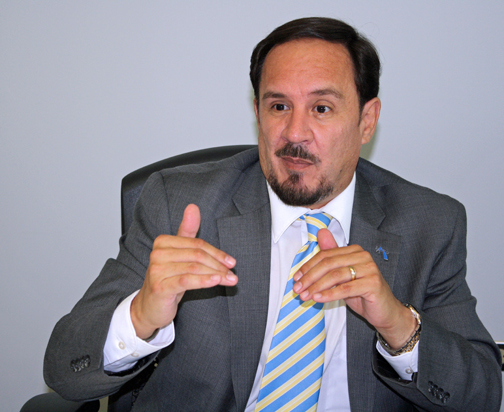Study: Nearly ½ of Puerto Rico residents live in poverty

Puerto Rico projects the image of a society that has achieved material progress but behind the curtain lies a stark reality: 45.6 percent of its people live in poverty compared with 15.9 percent in the U.S., according to a report released by the Pontifical Catholic University of Puerto Rico (PUCPR).
Poverty levels have not significantly dropped in the past 20 years and, in fact, could worsen in the next few years if the island’s economy does not improve, said the author of the report, Dr. Hernán Vera, in an interview Tuesday.
“If things keep up the way they are we will experience an increase in the level of poverty,” warned Vera, who is dean of the School of Graduate Studies in Behavioral Sciences and Community Affairs at PUCPR in Ponce.
The title of the study, carried out this summer, is “Poverty in Puerto Rico: Statistics, public policies and impact on the life of citizens, a look from the view of the Church’s Social Doctrine.”
Among its findings:
- Puerto Rico is the jurisdiction in the U.S. with the highest level of economic
- inequality in the distribution of income.
- There is a gender wage gap of $8,000 between men and women.
- Part-time jobs at minimum salaries are growing faster than full-time. Out of a labor force of little more than 1 million in January, nearly 450,000 people worked fewer than 40 hours a week.
- Puerto Rico has suffered chronic unemployment of more than 10 percent since the 1950s. The island’s eastern region experienced unemployment levels of more than 50 percent this year.
- 39 percent of people older than 65 are living in poverty. Seniors have been the most hurt by inflation and the current economic crisis.
The report is a call to arms for all sector of society to grapple with this issue but especially the government, said Vera.
“It was the government that led programs like the Great Society, the New Deal under Pres. Roosevelt. The (local) government must wield that leadership. It may share (the responsibility) with other groups but it is primarily up to the state to show that leadership,” he said.
While recognizing the island’s troubled economy, Vera said the state must be careful in developing public policies that restrict the flow of money.
“It must be careful with taxes, reducing (public sector) jobs, reforming the retirement system….it must try to achieve a fine balance between paying the debt, paying the bondholders, and helping citizens,” he said.
Among its recommendations, the report suggested promoting the development of small and medium-sized businesses and carrying out campaigns that uphold the value of work.
Vera also pointed to private sector initiatives like the centers started by Sister Isolina Ferré in Ponce that help troubled youths to find jobs as well as PUCPR’s own program called “Ideas” that promotes entrepreneurship.
Puerto Rico’s cooperative sector also could play an important role in reviving the island economy and creating jobs, according to Vera. “It’s a very strong sector,” with a great capacity to help finance small and mid-size businesses, he said.
Fifty years ago, poverty in Puerto Rico was “absolute” in that the very survival of people was at issue. Today’s poverty is more relative: people are forced to live precariously, within limitations. It’s a poverty, he said, that “limits the capacity of development of the individual.”














Every governor and politician, who has sat in
office and not seriously dealt with this, should
be ashamed of themselves.